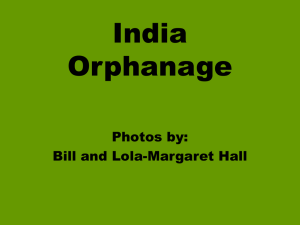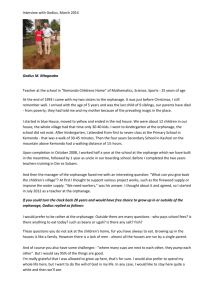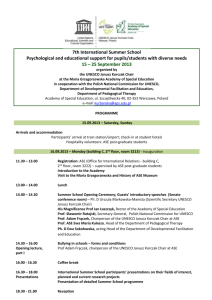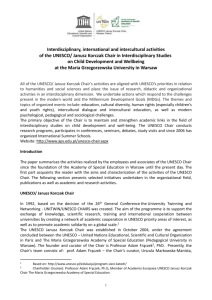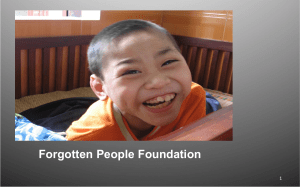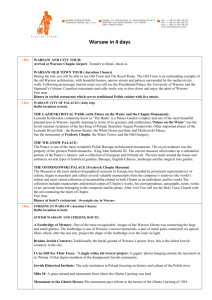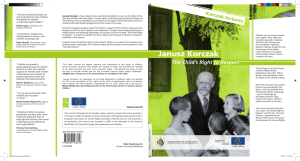Yad Vashem marks 69 years since the murder of Janusz Korczak
advertisement
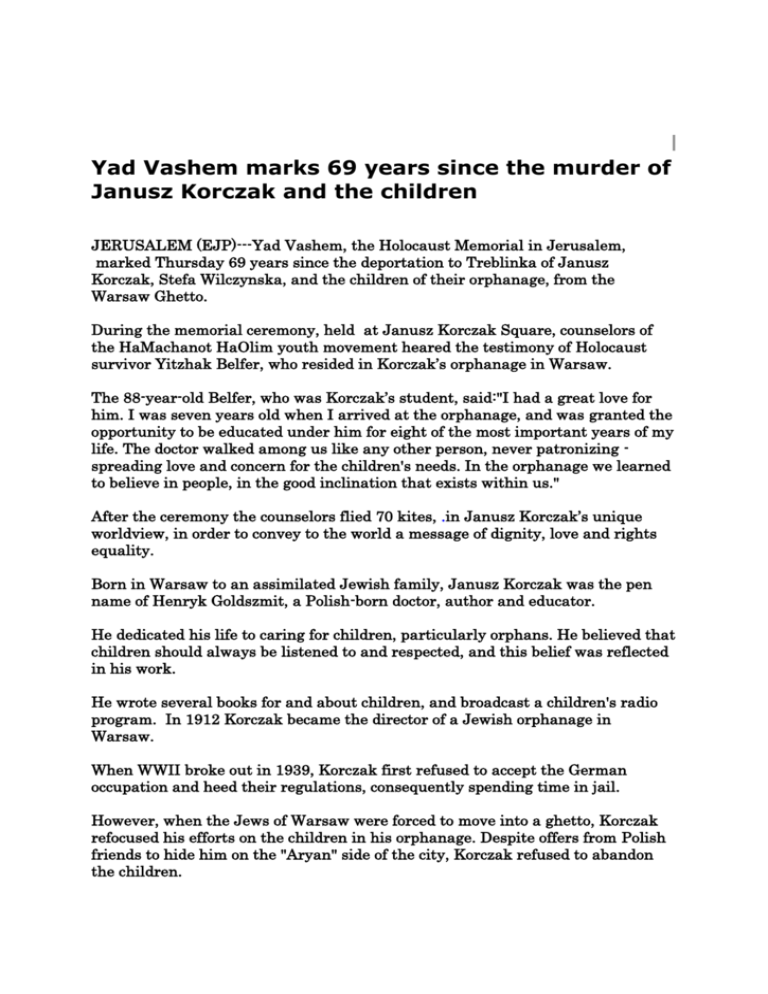
Yad Vashem marks 69 years since the murder of Janusz Korczak and the children JERUSALEM (EJP)---Yad Vashem, the Holocaust Memorial in Jerusalem, marked Thursday 69 years since the deportation to Treblinka of Janusz Korczak, Stefa Wilczynska, and the children of their orphanage, from the Warsaw Ghetto. During the memorial ceremony, held at Janusz Korczak Square, counselors of the HaMachanot HaOlim youth movement heared the testimony of Holocaust survivor Yitzhak Belfer, who resided in Korczak’s orphanage in Warsaw. The 88-year-old Belfer, who was Korczak’s student, said:"I had a great love for him. I was seven years old when I arrived at the orphanage, and was granted the opportunity to be educated under him for eight of the most important years of my life. The doctor walked among us like any other person, never patronizing spreading love and concern for the children's needs. In the orphanage we learned to believe in people, in the good inclination that exists within us." After the ceremony the counselors flied 70 kites, .in Janusz Korczak’s unique worldview, in order to convey to the world a message of dignity, love and rights equality. Born in Warsaw to an assimilated Jewish family, Janusz Korczak was the pen name of Henryk Goldszmit, a Polish-born doctor, author and educator. He dedicated his life to caring for children, particularly orphans. He believed that children should always be listened to and respected, and this belief was reflected in his work. He wrote several books for and about children, and broadcast a children's radio program. In 1912 Korczak became the director of a Jewish orphanage in Warsaw. When WWII broke out in 1939, Korczak first refused to accept the German occupation and heed their regulations, consequently spending time in jail. However, when the Jews of Warsaw were forced to move into a ghetto, Korczak refocused his efforts on the children in his orphanage. Despite offers from Polish friends to hide him on the "Aryan" side of the city, Korczak refused to abandon the children. Stefa Wilczynska was born in 1886 in Poland and completed her studies at the University of Liège, Belgium. In 1909, she met Korczak and the two began working together. When World War I began, Korczak was recruited and Stefa remained in charge of running the orphanage, which had expanded and housed some 150 children. In 1935, she visited Eretz Israel and lived at Ein Harod until 1939. With the Nazi occupation, the members of Ein Harod arranged for her the possibility of leaving Poland, but she turned it down and moved to the ghetto along with Dr. Korczak and the children. On August 5, 1942, during a 2-month wave of deportations from the ghetto, the Nazis rounded up Korczak, Wilczynska and the 200 children of the orphanage. They marched in rows to the Umschlagplatz with Korczak in the lead. He and Stefa never abandoned the children, even to the very end. Korczak, Wilczynska and the children were sent to Treblinka, where they were all murdered.

